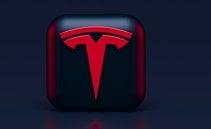As Tesla opens the supercharging network to Ford (and, later, General Motors), the famous EV company enters a new phase.

Ford electric cars will be able to access Tesla’s supercharger network starting on Friday. The deal comes at a turbulent time in the EV world, with Tesla quickly losing ground to domestic and foreign competition.
The Ford-Tesla deal was announced last year and came as a shock to all EV enthusiasts. The Tesla supercharger network was often touted as the company’s most important asset. The company claims that just 15 minutes of supercharging can add up to 200 miles of range.
With over 50,000 supercharges spread across the United States, Canada, and Mexico, Tesla also has the largest network of EV charging stations in the world.
Starting on March 1st, Ford EV owners will also be able to use Tesla’s superchargers through a simple adapter. Ford announced it will give adapters for free until they run out of stock and in no case after June 30th. After this day, adapters will cost $230 for any Ford owner who wants to use the supercharges.
Ford did not state how many adapters it was giving out free of charge, but it’s possible to apply on their website for direct home shipping.
A similar deal was closed between Tesla and General Motors, giving the latter’s customers access to over 12,000 supercharges across the US and Canada. According to GM CEO Mary Barra, this will save the company over $400 million in the construction of new charging stations.
Tesla’s strategy shift
In the last quarter of 2023, Tesla lost the top spot as the world’s largest EV carmaker to BYD. The Shanghai-based firm has only begun its expansion, with plans to open a new factory in Europe in 2024.
Meanwhile, Tesla’s CEO Elon Musk admitted that 2024 will be a tough year for the company. The latest Tesla model, the Cybertruck, has been a total failure, and the company has yet to release a new model to face growing competition.
European carmakers like Mercedes and BMW are also coming out with their solutions, often more efficient than Musk’s cars.
The only competitive advantage left to Tesla is its supercharging network. To push back competition, Musk decided to work with them. “Competition will continue to heat up and Tesla will inevitably lose some sales to rivals,” said vice president for global forecasting at AutoForecast Solutions Sam Fiorani, “but loyalty to the brand means the vast majority of owners will return to Tesla with little or no comparison shopping.”
Fiorani believes the new deals will grant Tesla between $6 and $12 billion every year in additional revenues. Knowing this, the position of Tesla in the EV market will be more than secure.





